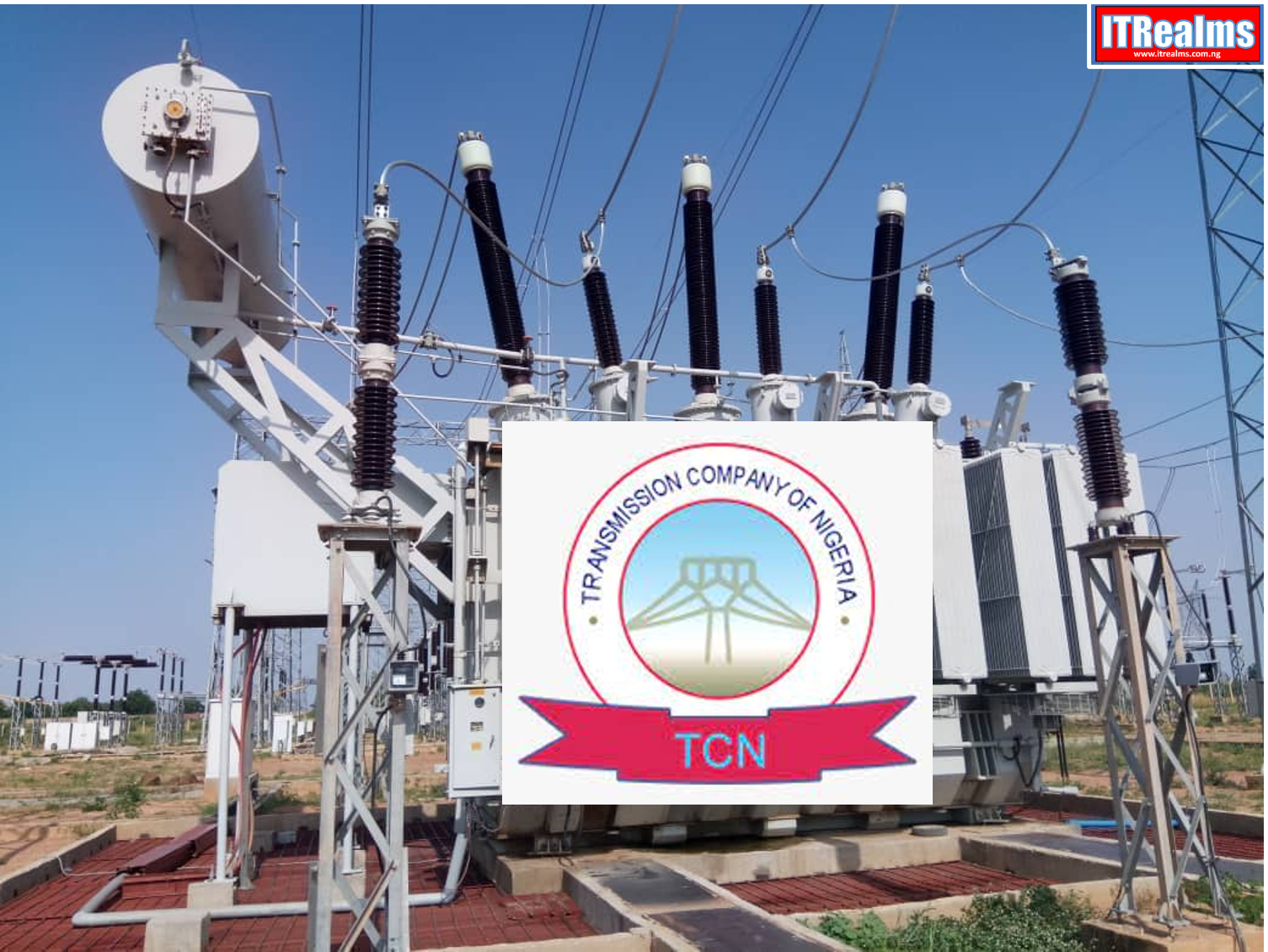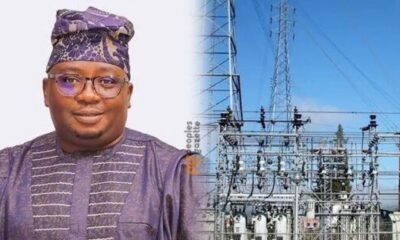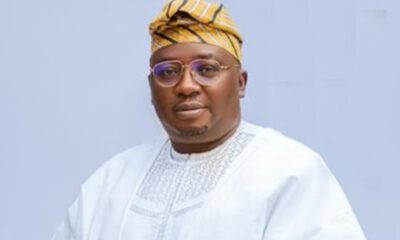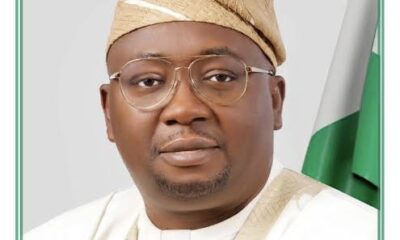Top Story
Power epilepsy: FG to restructure electricity distribution, targets allocation of one DisCo per state

…Moves to generate 6,000MW in six months
…As Power Minister vows to revoke licenses of erring DisCos
Following the recurrent blackout and power epilepsy being experienced across the country, the Federal Government has revealed plans to restructure electricity distribution in the country.
The electricity distribution and generation companies in Nigeria became privatised in 2013, with the federal government retaining the ownership of the Transmission Company of Nigeria (TCN).
As it currently stands, there are currently 11 distribution companies covering the 36 states and the Federal Capital Territory.
However, the Minister of Power, Oloye Adebayo Adelabu has berated the ineffectiveness of the DisCos in making power available to Nigerians.
The Minister of Power, Chief Adebayo Adelabu made this known during a meeting with the head of the agencies in Abuja saying the distribution segment remains the weakest link in the electricity supply value chain.
Speaking, Adelabu said, “Distribution is our weakest point and it is the closest to the consumers. If we don’t get distribution right, to Nigerians, we’re not doing anything. So, efforts need to be put on this. In fact, we must intensify our efforts in ensuring that we address all issues relating to distribution.
“It is true that the distribution companies are in the hands of the private sector. We don’t have direct control. But we need to compel them for performance. They must perform. If they do not perform, all our effort in generation, in transmission is zero. I’ve also had a meeting with the Chairman of NERC on how we’re going to address these performance issues of the electricity distribution companies across the nation.
“Why we have new policies in our power sector policy framework, which we’re going to finalize to address long-term issues in distribution, we must proffer short-term solutions to the lingering crisis. Before we get to that, we’re talking about the issue of the capitalisation of the discourse, for them to inject funds, to improve infrastructure.
“We are talking about issues of restructuring the DisCos along state lines, to make them manageable in size. Also, issuing new franchises to smaller DisCos to take over areas not being served by the existing ones or that have been underserved by the existing ones.
“I’ve said it before now that non performance of DisCos in terms of epileptic power supply qualifies as a basis for revocation of license. Any DisCo that is found wanting will be severely dealt with because their actions or inactions directly affect the performance of the sector,” he lamented.
The Minister also directed the Nigerian Electricity Regulatory Commission (NERC) to withdraw licenses of non-performing electricity distribution companies, DisCos.
Chief Adelabu stressed that NERC must look for creative ways of getting the DisCos to improve supply including the imposition of stiff sanctions on utilities which fail to pick their allocations and outright cancellation of licenses.
He insisted that the franchise areas covered by the DisCos were too large, adding the government would pursue a restructuring that would create smaller DisCos with companies restricted to one state each.
The Minister pointed out that wilful refusal by any DisCo to take up available power “is a qualified basis for the revocation of licenses too,” adding that “the distribution companies must be ready to pick up 90-99 percent of load allocated to them.”
Adelabu also described the ongoing electricity rationing across the country as unacceptable, disclosing the government plans to improve power generation from the present 4,000MW to 6,000MW in the next six months.
This, he said, would be achieved by paying off substantial debts owed to power generation companies and gas suppliers.
“So what we are looking at is to have an agreement to ramp up to a minimum of 6,000 megawatts within the next three to six months. I know that the highest we ever generated was 5,700, about three years ago. That was specifically November, 2021.
“And this 5,700 was also distributed. If we could achieve 5,700 at that time, I believe we still have infrastructure to generate between 6,000 and 6,500. In terms of the generating companies, I have no doubt in my mind that the existing capacity can give us 6,500 once there is stability in supply of gas.
“I’ve been to a number of the generating companies and I confirmed that they have this installed capacity. And a large percentage of this installed capacity is operational, but they are not available because of low or shortage in gas supply. Once there is gas supply, we want to ramp up generation to a minimum 6,000MW.”
He noted that while the Federal Government would continue to pay electricity subsidies in the short-term, it plans to gradually phase it out in the next three years and return the sector to a commercially driven tariff.
Speaking to journalists after the meeting, the Managing Director of the Transmission Company of Nigeria, Engr. Sule Abdulaziz explained that the fire that engulfed its substation in Kano happened while its engineers were trying to fix a leakage from one of its transformers.
He disclosed that power has been restored to most parts of the commercial city, adding that the remaining feeders would be restored before the end of Monday.
“The transformer involved was having some leakages. So our engineering team went there to work on it. They took an outage, followed all the requirements to do a maintenance job and they did it successfully.
“Now as they were putting back the transformer oil on the transformer, unfortunately, the filtering machine they were using caught fire.
“And before they could do anything, the fire had spread even to the second transformer. But thank God, with the help of the fire brigade, we were able to quench the fire,” he added.
The Minister had earlier summoned Chief executive officers of two Electricity Distribution Companies (DisCos) to a meeting over worsening supply situations in their regions.
Top Story
Power transmission: TCN unbundled, as FG orders registration of new Independent System Operator


…Nigerians enjoying improved power supply — Presidential aide
…As FG installs more substations in Lagos, Kebbi to boost power supply
The Federal Government through the Nigerian Electricity Regulatory Commission (NERC) has ordered the registration of a new Independent System Operator.
This function was earlier carried out by the Transmission Company of Nigeria (TCN), however, with the new directive, the TCN will cease to act in this role.
This directive Nigerian NewsDirect is coming on the heels of perceived allegations of mismanagement and ineffectiveness of the TCN to address repetitive issues on the nation’s power grid.
It is noteworthy that since privatisation, the national grid has collapsed more than 140 times thus drowning the nation into darkness.
In the order signed by the NERC Chairman, Engr. Sanusi Garba and Vice Chairman, Musiliu Oseni, the TCN has been ordered to transfer all system and market operations related assets, contracts and staff to the new entity.
The Nigerian Independent System Operator Limited will be responsible for managing the national grid and other system operations related market contracts and transactions.
TCN as a successor company of the defunct Power Holding Company of Nigeria, PHCN, was issued with two licenses by NERC as a Transmission Service Provider and Independent System Operator.
The NERC order formally unbundles the TCN into Transmission Service Provider, TSP and Independent System Operator, as prescribed in the Electricity Act 2023.
The Commission’s action is seen as a reaction to the frequent national grid collapses that have seen four nationwide blackouts this year.
The Commission ordered BPE to “incorporate, no later than 31 May 2024, a private company limited by shares under the Companies and Allied Matters Act to carry out the market and system operation functions stipulated in the EA and the terms and conditions of the system operation licence issued to TCN.”
“The name of the company shall, subject to availability at Corporate Affairs Commission, be the Nigerian Independent System Operator of Nigeria Limited (‘NISO’). ii. The object clause of the Memorandum of Association of the NISO as provided in section 1 6(2) of EA shall be as follows a. to hold and manage all assets and liabilities pertaining to market and system operation on behalf of market participants and consumer groups or such stakeholders as the Commission may specify; b. to carry out all market and system operation-related contractual rights and obligations novated to it by the Transmission Company of Nigeria;
“c. to negotiate and enter into contract for the procurement of ancillary services with independent power producers, successor generation licensees, etc and generally carryout market and system operations functions as specified under the EA and the terms of its license in the interest of market participants and system users; d. to carry out all market and system operation-related contractual rights and obligations novated to it by the Transmission Company of Nigeria; the income and property transferred to it by the TCN or whensoever derived shall be applied solely towards the promotion of its objects as set forth in its incorporation documents and no portion thereof shall be paid or transferred directly or indirectly by way of dividend, or bonus otherwise howsoever, by way of profit to the subscribers: provided that nothing herein contained shall prevent the payment in good faith of remuneration to any contractor or staff of the company in return for any services rendered to the Company.”
The Commission said the NISO’s initial subscribers shall be the Bureau of Public Enterprises and Ministry of Finance Incorporated (MOFI) while the final shareholding structure of NISO shall be determined after further consultations with government, market participants and industry stakeholders.
Meanwhile, a Presidential aide to President Bola Ahmed Tinubu has stated that Nigerians have been enjoying improved power supply.
The President’s Special Assistant on Social media, Dada Olusegun in a series of tweets made this known.
According to him, “Nigeria’s second largest hydropower plant; the ZUNGERU POWER PLANT, was connected to the national grid last week leading to an improved supply in electricity to many areas across the country.
“The ambitious power plant represents a major achievement of the APC led government starting under former President Muhammadu Buhari who handed over engineering, procurement, and construction to a Chinese consortium comprising China National Electric Engineering Company (CNEEC) and Sinohydro after initial construction began in 2013.
“President Tinubu ensured continuity with the concession process which is set to earn Nigeria $70m annually for the next 30 years for managing the complex.
“The gigantic reservoir has a capacity to hold 10.4bn cubic meters of water. The power project is estimated to generate 2.64 billion kWh of electricity annually, which will meet close to 10 percent of Nigeria’s total domestic energy needs. Slowly but surely, we will get there,” He tweeted.
Similarly, more mobile substations acquired under the Federal Government-Government Siemens deal are being installed in parts of the country to boost the wheeling capacity of the transmission network.
Minister of Power, Adebayo Adelabu who inaugurated the mobile substations in Lagos and Birnin Kebbi, said the infrastructure stands as a beacon of hope for businesses and households towards achieving uninterrupted power supply.
The two Substations installed have a total wheeling capacity of 123 megawatts which is expected to enhance electricity supply.
Minister of Power, Adebayo Adelabu, described the project as a testament to the renewed hope agenda of President Bola Tinubu in accelerating the delivery of the Siemens project thereby transforming the power sector.
The power minister implored Nigerians to safeguard the infrastructure against vandalisation as the success of government interventions in the sector hinged on collective responsibility.
Top Story
2024 is for expansion, higher dividends for our shareholders — Transcorp Hotels MD


…Gives reasons for proposed 5,000 capacity event centre in Abuja
By Emmanuel Atokolo
The Managing Director/CEO of Transcorp Hotels Plc, Dupe Olusola has stated that the year 2024 for the company is targeted at expansion and delivering higher dividends for her shareholders.
Speaking in an interview on Arise TV, Dupe explained that the company is solely focused on expansion as they look to remain a leading Hospitality brand in Nigeria through massively investing in the Hospitality business.
The Transcorp Hotels MD also seized the occasion to clarify why the company is embarking on the construction of an event centre.
Dupe explained that Transcorp is building a 3,500 to 5,000 capacity events centre in Abuja to ensure that high profile events can be held in Nigeria and in turn generate revenue for themselves while also tackling unemployment.
She also mentioned a 315 rooms 5-star Hotel at Ikoyi on a 14,000 square metres land that will provide a top notch leisure and relaxation environment with side attractions.
When quizzed about how Transcorp has been able to increase asset growth and revenue base, the CEO explained that
Dupe stated that all the stakeholders during the AGM were pleased with the financial statements and it was approved that a 20 kobo dividend be paid to all shareholders which is a 54% increase from the previous year which was 13 kobo.
She added that the Hotel recorded 72 percent growth in the first quarter (Q1) of 2024, 5 billion in net profit and Occupancy rate increased to 83 percent as guests are always happy to come back and bring potential guests too.
“Profit before tax also increased by 105 percent, so also did revenue as it increased by 36 percent amounting to N41.5 billion.” She narrated.
The MD added that to add to the shareholders joy over the profitability witnessed so far, there are further plans to ensure that they make more progress in the current year.
She said that 2024 will be about expansion through an aggressive budget.
Likewise, Dupe mentioned that they have a Hospitality business platform named “Aura by Transcorp PLC” through which you can make online bookings from anywhere.
She noted that it also helps to enlarge their foot prints as inventory has increased to 5000 and they are looking to further solidify their rating in Nigeria in the next 2-3 years, then expand outside the shores of Nigeria in the next 3-5 years.
In her response to how Transcorp made much profit in the Q1 of 2024, Mrs Olusola clarified that resilience has been a key factor as they don’t take for granted that they are a leading Hospitality brand but they strive to improve their services as they continually work on guest experience which is a vital factor in the Hospitality business.
She also explained that the Covid era taught them to think outside the box which motivated them to make arrangements to host diverse guests as some people don’t book rooms but come with their family to just relax and go back.
Top Story
Customs FX rate hiked to N1,441/$


The foreign exchange (FX) rate for import duties to N1,441.58 per dollar has been hiked by the Nigeria Customs Service (NCS) as observed on Friday on the federal government’s single window trade portal.
The increase represents a 4.94 percent as against the N1,373.64/$ adopted on May 1.
The rate adopted by Customs was observed on Friday on the federal government’s single window trade portal.
The customs typically adopts FX rates recommended by the Central Bank of Nigeria (CBN) for import duties based on trading activities in the official FX market.
The rate is higher than the official FX rate of N1,402/$ recorded on May 2, and N1,390 traded on May 1.
Recall that according to CBN on February 23, the Customs and other related parties must adopt the closing rate in the official window for import duty.
The apex bank said the FX rate at the point of importation should be used for import duty assessment until the termination date and clearance are finalised.
Meanwhile, the Chief Executive Officer (CEO) of the Centre for the Promotion of Private Enterprise (CPPE), Muda Yusuf said such a movement could be detrimental to the economy.
He said the economy’s real sector activities such as planning, production, and other activities are negatively impacted by the frequent changes.
-
capital market2 years ago
Rt.briscoe, FBNH, Others halts negative performance of stock market
-
Finance3 months ago
Court orders Sen. Victor Umeh to repay N136m bank debt to AMCON
-



 Abuja Update2 months ago
Abuja Update2 months agoUNDP, FG partnership needed to achieve inclusion, equity- Minister
-
Abuja Update1 month ago
Banks drive stock market performance with N147bn gain
-



 Business2 weeks ago
Business2 weeks agoTingo Group unveils Tingo Electric, Tingo Cola drink at Lagos launch
-



 Health3 weeks ago
Health3 weeks agoCapacity training will reduce migration of health workers- NPHCDA
-
News4 months ago
Oil thieves sponsoring malicious media campaign against Navy – Spokesman
-



 Infotech1 month ago
Infotech1 month agoWorld Backup Day: NITDA urges Nigerians to ensure backup of data












